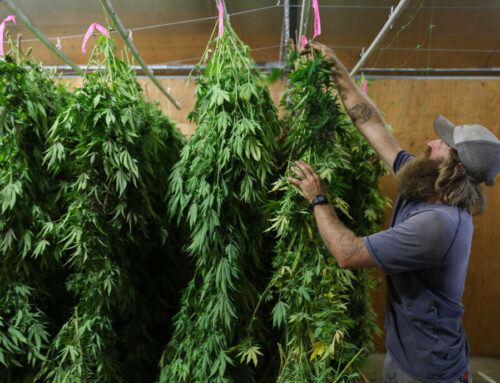Germany’s Cabinet Advances Bill to Legalize Recreational Cannabis Amidst Controversy
BERLIN — Germany’s cabinet gave the green light to a divisive bill on Wednesday that aims to legalize recreational cannabis use and cultivation, positioning Germany to have one of the most liberal cannabis statutes in Europe. This move could potentially drive a global trend towards similar legalizations.
Pending parliamentary approval, the proposed law would authorize adults to hold up to 25 grams (0.88 oz) of cannabis, cultivate a maximum of three plants, or obtain the substance via membership in non-profit cannabis collectives.
The center-left leadership under Chancellor Olaf Scholz believes this legislation will undercut the black market, shield consumers from tainted cannabis products, and diminish drug-associated crime rates.
In tandem with the bill, a core strategy involves initiating a campaign to increase public awareness about potential cannabis risks, with the intention to ultimately limit its consumption. Health Minister Karl Lauterbach, a member of Scholz’s Social Democrats (SPD), underscored that without this legislative shift, such a campaign wouldn’t attract significant attention.
Addressing a news conference in Berlin, Lauterbach stated, “With our existing policies, we couldn’t genuinely safeguard our youth; the topic had become taboo.” Highlighting the increase in cannabis consumption, Lauterbach described the bill as “an essential pivot in our drug policy.”
According to health ministry data, cannabis use nearly doubled among German adults aged 18-25 in 2021, reaching 25% from rates observed a decade prior. To address concerns about younger adults’ vulnerability to cannabis-related health risks, the legislation will cap their purchase limit to 30 grams monthly, compared to 50 grams for older individuals.
However, the bill hasn’t escaped criticism. Conservative figures warn that this could promote cannabis usage and overburden authorities. Armin Schuster, the conservative interior minister for Saxony, voiced concerns over a potential “complete loss of control.”
In March, a U.N. narcotics watchdog observed that the legalization of recreational cannabis by various nations correlated with escalated consumption and associated health issues. However, Lauterbach counters that Germany has been vigilant about learning from other countries’ pitfalls.
The Scholz administration had initially contemplated allowing broader cannabis sales in licensed outlets but, following discussions with Brussels, decided on piloting licensed shops in select regions. This trial aims to evaluate the implications of a formal commercial cannabis supply chain over five years. Separate legislation will be presented for this trial phase, with models being adapted from similar projects in the Netherlands and Switzerland.
Several European nations have already sanctioned cannabis for restricted medical applications, with Germany joining this list in 2017. Moreover, while Malta sanctioned limited personal cultivation and possession of cannabis in late 2021, Germany’s proposed legislation could make it the premier major European country to do so.
Despite these advancements, strict regulations are outlined for cultivation. Cannabis collectives with up to 500 members are mandated to install theft-resistant doors and windows, with compulsory fencing for greenhouses. Smoking within these clubs or near educational and recreational facilities will be prohibited.
Germany’s hemp association deems these stipulations “unrealistic” and advocates for combatting the black market via authorized cannabis retail. Concurrently, Kristine Luetke, the parliamentary drug policy spokesperson from the junior coalition partner the Free Democrats, labeled Lauterbach’s approach as a “prohibition policy,” resulting in a “bureaucratic monstrosity.”




































